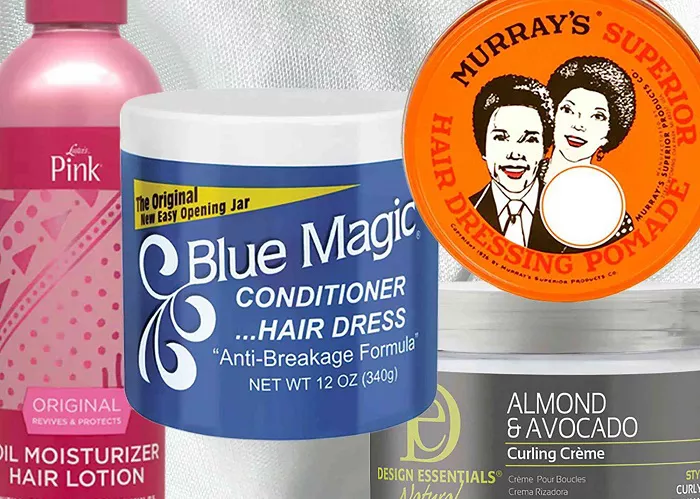For generations, cult Black hair care brands have been more than just products—they are cultural cornerstones, trusted staples that have shaped identity, style, and community for Black women across the world. These iconic brands have preserved curls, protected edges, and uplifted spirits through every twist and turn of evolving beauty standards.
What defines a cult Black hair care brand? Hairstylist and founder of The Doux, Maya Smith, describes it as something “undeniable and unique,” deeply tied to nostalgia and cultural experience. “That connection to people’s memories is what really sets blueprint brands apart from ‘me too’ products,” Smith explains. For many, these brands were introduced through family and community networks—your aunties, sisters, friends, and church gatherings—where word of mouth was a powerful force.
Celebrity stylist and beauty educator Monaé Everett recalls how seeing familiar brands like pink lotions or Motions in beauty supply stores was a signal of belonging. “If I didn’t see those products, I felt like I wasn’t welcome,” she says, emphasizing how these products shaped not only hair care routines but also cultural identity and inclusion.
Cornell McBride Jr., CEO of Design Essentials—a brand founded by his father 35 years ago—agrees that sustainability and authenticity are key. “If it’s just a fad, it won’t last. True cult brands are foundational,” he says.
These brands carry rich sensory and emotional significance—bright globs of grease, the smell of spritz, butterfly clips, and combs heated over flames mark rites of passage, special occasions, and everyday self-care rituals. They have long served as shields against societal pressures and platforms for self-expression and confidence.
Design Essentials, in particular, became a powerhouse through its deep ties with Black hair salons. “Stylists embraced our products and educated consumers daily,” says McBride. Salons were sacred spaces of empowerment where hair care was about nurturing, not conforming.
Similarly, brands like Miss Jessie’s, Shea Moisture, Carol’s Daughter, and Eden Bodyworks helped usher in the natural hair movement, focusing on educating consumers about their curls and promoting self-love and empowerment.
The rise of social media transformed the landscape dramatically. Platforms like YouTube, Instagram, and TikTok introduced a new wave of competition and consumer engagement. “Legacy brands couldn’t just rely on being the go-to anymore,” Everett notes. While this shift sparked some tension between professional stylists and the burgeoning DIY community, reverence for trusted brands remained strong.
McBride admits his company initially overlooked these shifts but has since adapted by embracing social media to connect with consumers more transparently. Design Essentials now shares behind-the-scenes content and spotlights their chemistry teams on TikTok, bridging the gap between brand and user.
Despite the unpredictability of trends on social media, consumers continually return to the OG brands cherished by their mothers and aunts while exploring new favorites, proving the lasting power of these cult brands. As Everett affirms, “Those legacy brands aren’t going anywhere.”
In a landscape that constantly evolves, cult Black hair care brands remain pillars of hair health advice and cultural identity—celebrated for their authenticity, innovation, and the vital role they play in empowering Black women everywhere.
Related Topics:
- Finnish Brand Four Reasons Wins Global Award for Best Hair and Scalp Product
- Revive Your Hair Naturally: Rausch Cosmetics Delivers Gentle Care for Sensitive Scalps
- The Best Hair Restoration Methods


